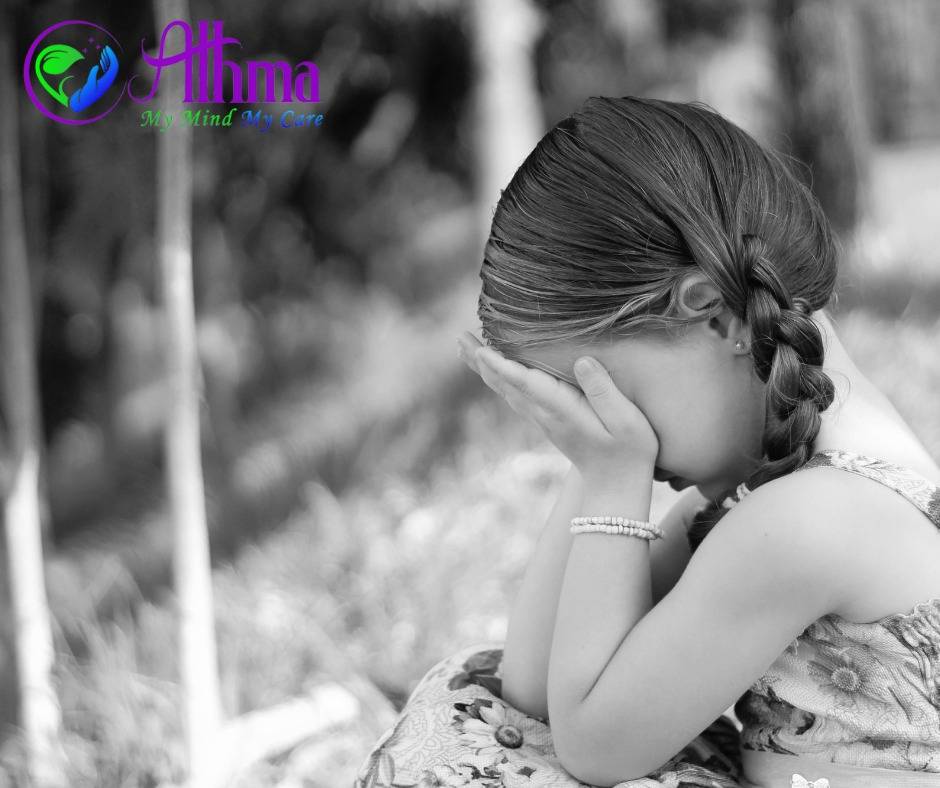Children & depression
November 8, 2023

Can Children really have “Depression”?
No way, we all came through the phase of childhood; we never faced anything called depression. Those kinds of words are used to hide real problems like laziness and getting low marks in exams etc. Look at him, he is laughing, doing all his daily routines, going to school, etc., where is the depression here?
Childhood depression is different from the normal “blues” and simple emotions that children go via life as they develop. Just because a child seems sad/happy doesn’t necessarily mean they have significant depression. But if the sadness becomes persistent or interrupts normal social activities, interests, schoolwork, or family life, it may mean they have a depressive illness.
But what we have to keep in mind is that depression is a serious illness, but it’s also a treatable one.
Children with depression often experience many of the same depression symptoms as adults do.
However, children may have a hard time expressing themselves and these sensations because of their narrow emotional verbiage.
Some of the symptoms of depression in children involve:
• Having low self-esteem
• Lack of energy and effort
• Crankiness or anger
• Continuous feelings of sadness and hopelessness
• Social withdrawal
• difficulty concentrating
• Physical complaints (such as stomach aches and headaches) that don’t respond to treatment
• Feelings of worthlessness or guilt
• Impaired thinking or concentration and even can have
• Thoughts of suicide/self-harm
There is no single cause for childhood depression. Several reasons can cause depression. There is a combination of causes, such as genetics, environment, and psychological factors. Researchers suggest that major depression has a strong genetic part given that the illness can be handed on from one generation to the next. However, it’s crucial to note that children don’t always conceive depression simply because their parents have it. Children are also more possible to develop depression if they encounter environmental stress such as neglect, abuse, or trauma, significant changes or losses, family and parental distress, or significant coequal conflicts such as bullying or even romantic loss.
Since there are causes for childhood depression there will be risk factors connected as well. Some of the risk factors consist of:
• suicidal thoughts/behaviors
• increased risk of evolving depression that’s worse or lengthened later
• exacerbating symptoms
• severe depressive seizures
• mood ailments also,
Simply speaking, what can be done to prevent or cure depression in children, first and foremost will be while it may be difficult, try to have a conversation with your child about what they’re handling and encountering, it’s always best to have a good conversation with them. Kids might not know why they are so melancholy and why things seem so tough. Let them understand you see that they’re going through a hard time and that you’re there to assist. Listen, comfort, offer your support, and show love.
The next step would be to have a consultation with your child’s doctor. Tell your child’s doctor if you have also detected shifts in your child’s sleep patterns, eating, energy, or effort.
Since, still getting to a therapist or counsellor, is considered to be labelling them as having severe/stigmatized mental health problems, the next step is the most important, to take them to Therapists.
A child therapist (mental health doctor) will spend time speaking with you and your child. They will do an in-depth assessment of depression by asking questions and listening. The therapist can assure you how therapy can help your child. Periodic follow-up stops may be recommended to observe your child’s progress and ensure persisted well-being.
Last, but not least, Be patient and kind. When your child behaves moody or difficult, try to remain patient. Most children who obtain early and adequate treatment for major depression will enhance and may even go on to experience complete solution of symptoms.
Thus, on a note, mental health illness is not a joke, it really negatively intrudes one’s life, regardless age, gender, or any other factors.